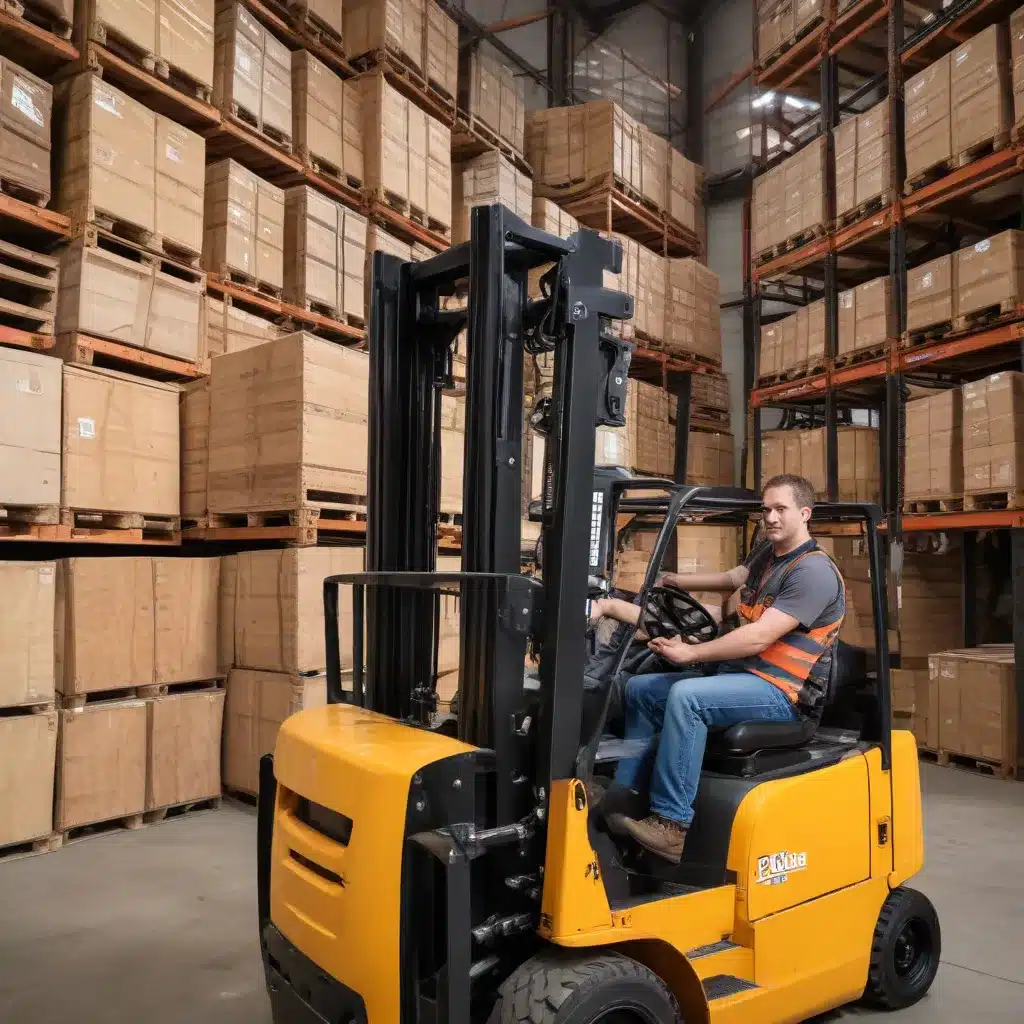
The Importance of Effective Communication in Forklift Operations
In the fast-paced world of warehousing and logistics, successful forklift operations rely heavily on the ability of operators to collaborate and communicate effectively. As a seasoned industry expert, I’ve witnessed firsthand how strong teamwork and clear communication can optimize efficiency, enhance safety, and drive continuous improvement within warehouse environments.
Forklift operators play a crucial role in ensuring the smooth flow of materials, the accuracy of inventory management, and the timely fulfillment of customer orders. However, their tasks extend well beyond the operation of the equipment itself. Forklift operators must continuously coordinate with their colleagues, supervisors, and other warehouse personnel to ensure a seamless and synchronized workflow.
Establishing Clear Communication Channels
One of the hallmarks of a well-oiled forklift operations team is the establishment of clear communication channels. This involves regular meetings, tailored training sessions, and the implementation of standardized procedures for sharing information and updates.
By holding frequent team meetings, forklift operators can stay informed about changes in warehouse protocols, discuss any challenges they are facing, and collaborate on solutions. These discussions foster a sense of camaraderie and encourage operators to look out for one another, both in terms of safety and efficiency.
Additionally, targeted training programs that focus on effective communication strategies can greatly benefit forklift operators. These programs might cover topics such as active listening, conflict resolution, and the importance of providing clear and concise instructions. By equipping operators with these essential soft skills, warehouses can empower their teams to work together more cohesively.
Coordinating Workflow and Task Prioritization
Effective communication also plays a pivotal role in the coordination of workflow and task prioritization. Forklift operators must constantly be aware of the current inventory levels, upcoming shipments, and any urgent customer requests. By maintaining open lines of communication with their supervisors, warehouse managers, and other team members, operators can better anticipate and respond to changing priorities.
For example, if a forklift operator becomes aware of a last-minute rush order, they can promptly notify the relevant personnel, allowing the team to collectively adjust the schedule and redirect resources as needed. This level of coordination and information-sharing helps to prevent bottlenecks, minimize delays, and ensure the timely fulfillment of customer orders.
Fostering a Culture of Continuous Improvement
In addition to enhancing day-to-day operations, effective communication among forklift operators can also drive continuous improvement within the warehouse. By openly sharing insights, ideas, and concerns, operators can contribute to the development of more efficient processes, the identification of safety hazards, and the implementation of innovative solutions.
When forklift operators feel empowered to voice their observations and suggestions, they become valuable partners in the ongoing optimization of warehouse operations. This collaborative approach not only boosts morale and job satisfaction but also positions the organization for long-term success in an increasingly competitive and dynamic industry.
Strategies for Enhancing Forklift Operator Collaboration and Communication
To foster a culture of effective collaboration and communication among forklift operators, warehouse managers and supervisors can implement the following strategies:
1. Establish Clear Roles and Responsibilities
Clearly defining the roles and responsibilities of each forklift operator, as well as the expectations for their interactions with other team members, helps to establish a shared understanding of how the team should function. This clarity can prevent confusion, minimize conflicts, and ensure that all operators are working towards a common goal.
2. Encourage Cross-Training and Job Shadowing
By providing opportunities for forklift operators to cross-train and shadow one another, warehouses can foster a deeper understanding of each team member’s tasks and challenges. This exposure not only promotes empathy and collaboration but also enables operators to better anticipate and support each other’s needs.
3. Implement Feedback Mechanisms
Implementing regular feedback mechanisms, such as one-on-one reviews or anonymous suggestion boxes, allows forklift operators to voice their concerns, share their ideas, and provide constructive feedback to their colleagues and supervisors. This open communication channel can help identify areas for improvement and foster a culture of continuous learning and growth.
4. Recognize and Reward Collaborative Behavior
By recognizing and rewarding forklift operators who demonstrate exceptional teamwork and communication skills, warehouses can reinforce the importance of these qualities and encourage other team members to emulate such behaviors. This positive reinforcement can further strengthen the overall collaborative spirit within the organization.
5. Foster a Supportive and Inclusive Environment
Creating a work environment that is supportive, inclusive, and respectful of all team members can go a long way in promoting effective collaboration and communication. Warehouse managers should encourage open dialogue, address any conflicts or interpersonal issues promptly, and cultivate a culture of mutual respect and trust.
Conclusion
In the fast-paced and dynamic world of forklift operations, effective collaboration and communication among operators are essential for maintaining a productive, efficient, and safe warehouse environment. By establishing clear communication channels, coordinating workflow and task prioritization, and fostering a culture of continuous improvement, warehouses can unlock the full potential of their forklift operations teams.
As a seasoned industry expert, I have witnessed the profound impact that strong teamwork and effective communication can have on warehouse performance. By implementing the strategies outlined in this article, warehouses can empower their forklift operators to work together seamlessly, overcome challenges, and contribute to the overall success of the organization.
Remember, the Forklift Reviews blog is committed to providing practical tips and in-depth insights to help warehouse professionals like you navigate the ever-evolving landscape of forklift operations. Keep an eye on our website for more valuable content designed to enhance your skills and drive success.

